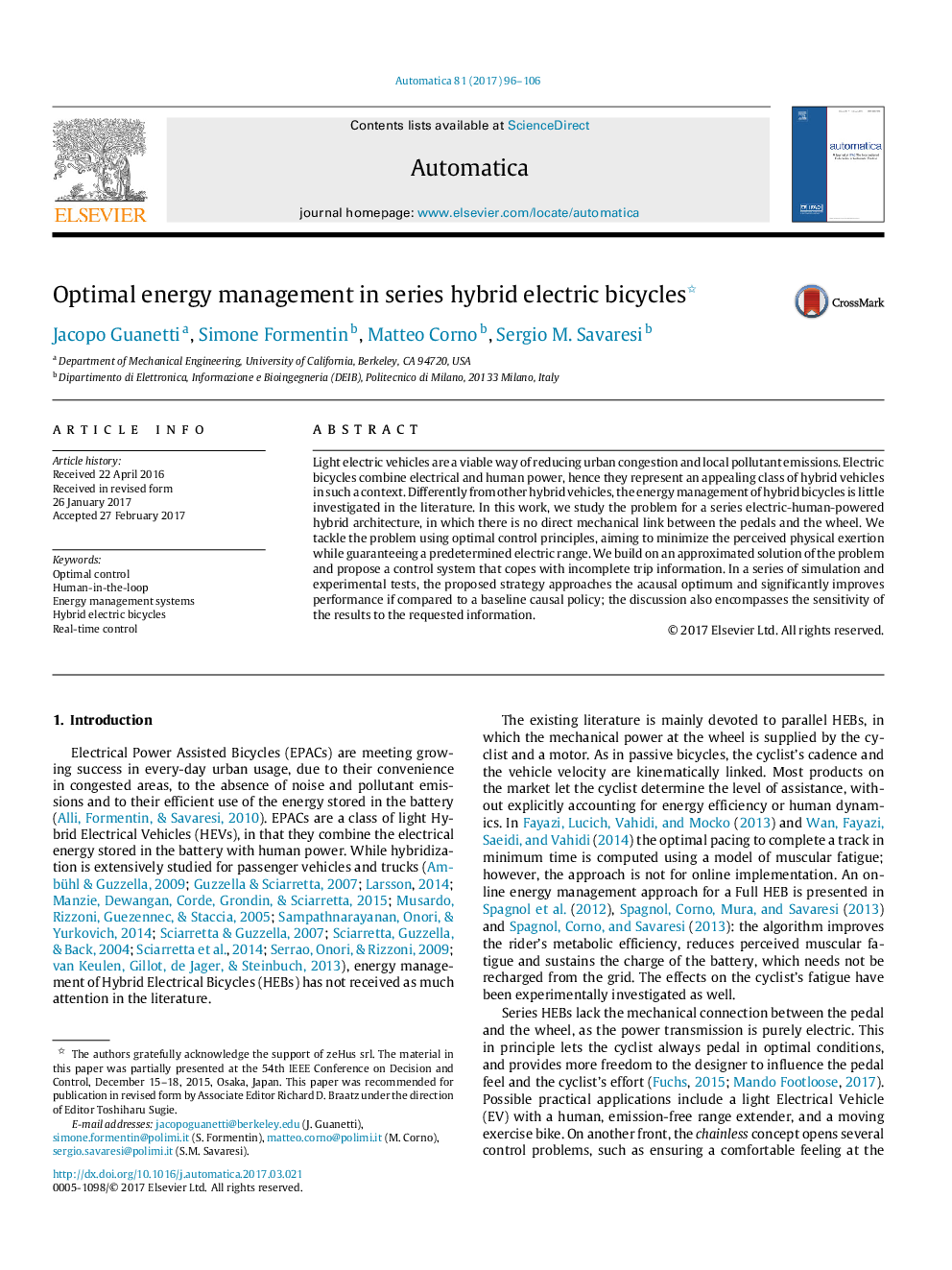| Article ID | Journal | Published Year | Pages | File Type |
|---|---|---|---|---|
| 4999777 | Automatica | 2017 | 11 Pages |
Abstract
Light electric vehicles are a viable way of reducing urban congestion and local pollutant emissions. Electric bicycles combine electrical and human power, hence they represent an appealing class of hybrid vehicles in such a context. Differently from other hybrid vehicles, the energy management of hybrid bicycles is little investigated in the literature. In this work, we study the problem for a series electric-human-powered hybrid architecture, in which there is no direct mechanical link between the pedals and the wheel. We tackle the problem using optimal control principles, aiming to minimize the perceived physical exertion while guaranteeing a predetermined electric range. We build on an approximated solution of the problem and propose a control system that copes with incomplete trip information. In a series of simulation and experimental tests, the proposed strategy approaches the acausal optimum and significantly improves performance if compared to a baseline causal policy; the discussion also encompasses the sensitivity of the results to the requested information.
Related Topics
Physical Sciences and Engineering
Engineering
Control and Systems Engineering
Authors
Jacopo Guanetti, Simone Formentin, Matteo Corno, Sergio M. Savaresi,
